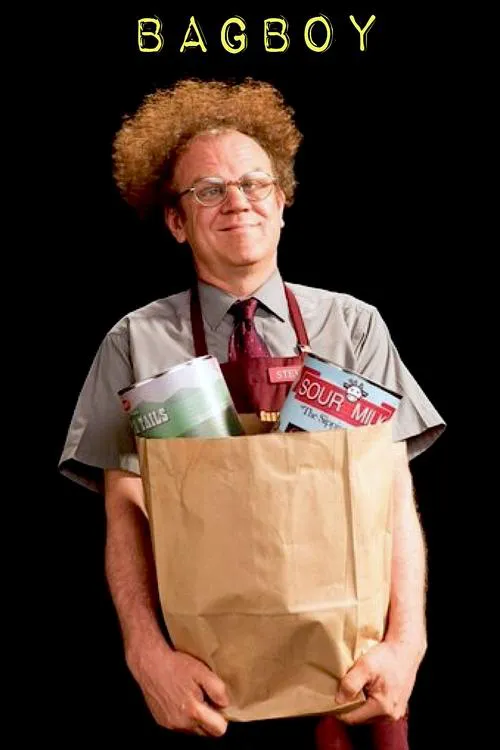Bagboy

Intrigue
The movie 'Bagboy' is essentially a satirical take on the world of sitcom television, as directed by Tim Heidecker's alter ego, Dr. Steve Brule. Heidecker stars in the title role, presenting a rejected pilot that he directed himself. The film takes on a fictionalized version of life as a Myer's Super Foods bagboy. The story revolves around the mundane life of the bagboy, who spends his days carrying out groceries for customers. One day, a shoplifter tries to steal some items from the store, and the bagboy is faced with an opportunity to make a change in his otherwise ordinary life. However, instead of taking action, he decides to keep quiet and allow the shoplifter to escape. The film then proceeds to explore the motivations behind the bagboy's decision. He is torn between his desire to do what is right and the possibility that speaking out against the shoplifter may jeopardize his employment. He is also portrayed as being apathetic and disconnected from the world around him. He shows little passion or enthusiasm for his job as a bagboy, or indeed for life in general. Throughout the film, Dr. Steve Brule frequently breaks the fourth wall, addressing the audience directly and engaging in discussions that further illustrate his views on television, acting, and the nature of storytelling. His character often talks about how the film he is working on is being shaped by television executives who are demanding changes to make the show more commercially viable. This further highlights his frustrations with the corporate side of the television industry and how it stifles creative freedom. As the story progresses, the audience is invited to witness the behind-the-scenes action of creating a sitcom. We see how the script is constantly rewritten in response to industry pressure and how this affects the characters and their relationships. Dr. Steve Brule often expresses his disdain for this process and its effects on the integrity of the show. In the midst of this exploration of television's underbelly, we see the character of the bagboy, struggling with the moral implications of his silence. At a surface level, it may seem as though this story is simply about a shoplifter and a bagboy's decision, but it's an excuse for a commentary on social issues, personal responsibility, and morality. The film is also a sendup of television tropes and conventions. It uses humor and satire to poke fun at the genre, pointing out how sitcoms are typically constructed to avoid controversy and how they rely heavily on formulaic structures to appeal to their audiences. Through the bagboy's internal conflict, the filmmakers make pointed commentary on social issues such as the nature of moral responsibility and the consequences of inaction. By using a seemingly trivial situation as a starting point, the film highlights these complexities and invites viewers to think critically about their own lives and the choices they make. Ultimately, 'Bagboy' is a cleverly crafted mockumentary that satirizes the television industry's penchant for conventionality and conformity. At its core, it is a thought-provoking exploration of the complexities of moral decision-making and the human condition, presented in a unique and offbeat package that leaves viewers pondering the questions it poses long after the credits roll.
Critiques
Recommandations



